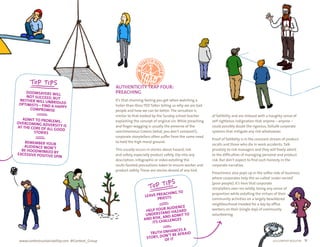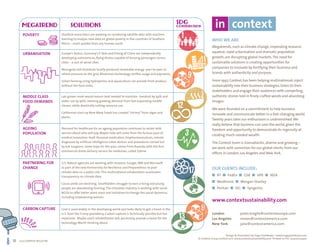The document discusses various megatrends like population growth, urbanization, and climate change that are putting pressure on businesses. It argues that these trends present both risks and opportunities. The opportunities include developing new technologies like lab-grown meat, renewable energy sources like wind and solar, electric vehicles, and carbon capture for coal plants. The document emphasizes the importance of collaboration between businesses and non-profits to address these challenges and stresses the need for companies to effectively communicate their sustainability efforts to build trust.











